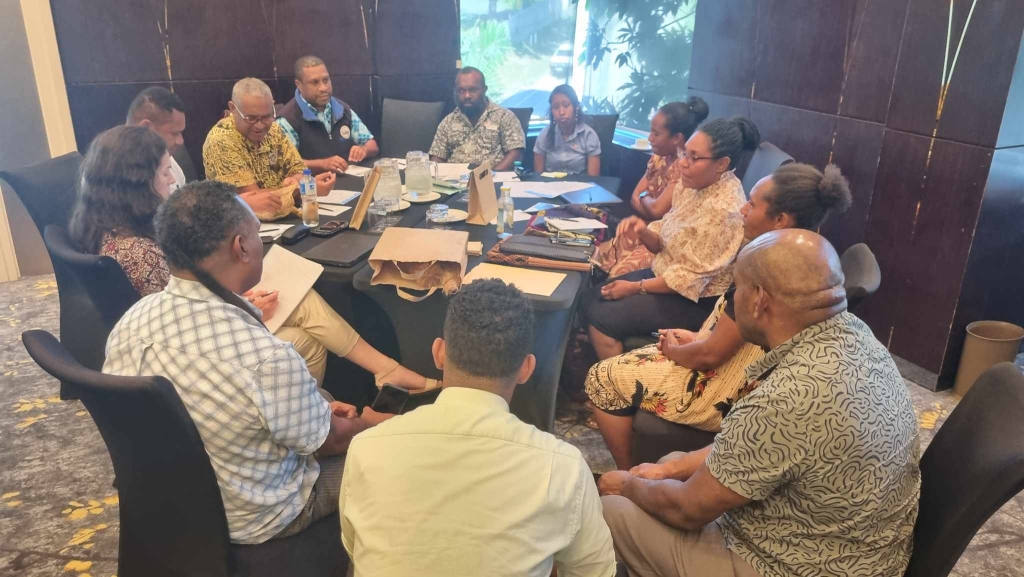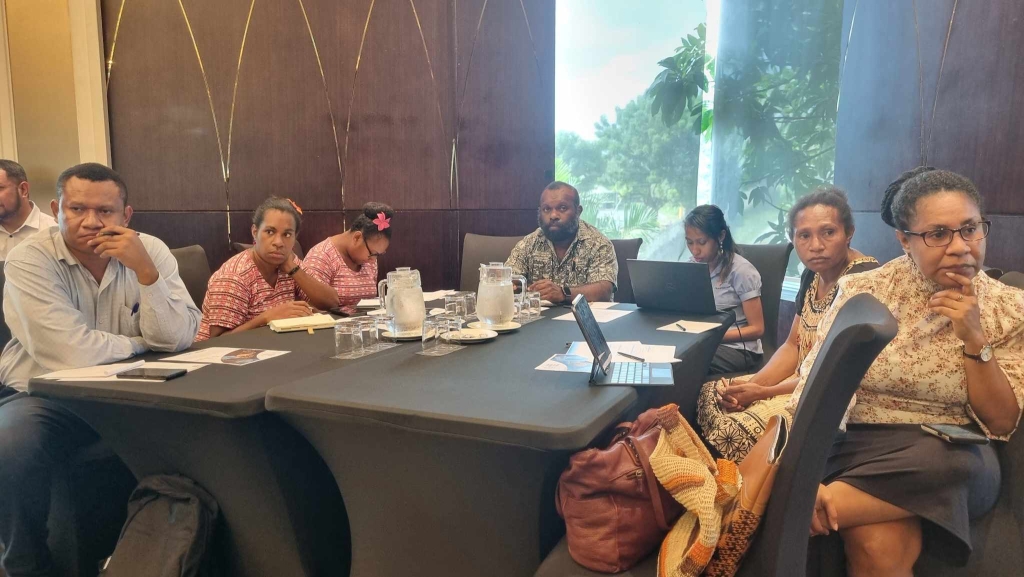
11 July 2023, Port Moresby - A diverse range of stakeholders from government, industry and community and academia held an interactive meeting last week to share views on what Papua New Guinea (PNG) needed to do to address the very visible single-use plastic waste problem.
The workshop was organised by the Pacific Ocean Litter Project (POLP) implemented by the Secretariat of the Pacific Regional Environment Programme (SPREP) and funded by the Australian Government.
The workshop recognised that there were a number of ongoing initiatives to reduce single-use plastic waste in PNG but there is a need for national regulatory regime to address the issue, supported by compliance and enforcement measures. A national waste management policy was drafted in 2017, which needs to be finalised. It addresses plastic waste but could be supported by a more detailed action plan specifically targeting single-use plastic measures and the respective roles of contributions of national and provincial governments, industry, communities and research institutions.
PNG has the highest coastal population in the Pacific Islands and has a daily plastic waste generation of approximately 282 tonnes (t). An estimated 246t are mismanaged daily, entering the marine environment through release from uncontained disposal sites or by littering.

Professor Frank Griffin, the Vice Chancellor of the University of Papua New Guinea, stressed the importance of finalising the national policy framework to guide cohesive action across the country, emphasising government’s critical role in driving it.
“Otherwise not withstanding the goodwill and of those working in the single-use plastic space, the effort would be disjointed and projects would come and go without sustainability and impact,” he said.
The POLP workshop discussed the priorities that PNG submitted in an Expression of Interest to SPREP. These included activities to address POLP outcomes of plastics policies and measures, public awareness, education and behavioural change, working with the food beverage and tourism sector and encouraging the use of single-use plastic alternatives.
Presentations were given on the use of banana trunk fibre to generate alternative products by Mr Steven KaiKai, who runs a small business called Starjel Banafib Paper. The meeting also heard from Ms Sharlene Gawi on the work done by womens’ groups to promote the use of bilums, which could be incentivized.
“The POLP has a big emphasis on alternative products. Yesterday we were privileged to visit a small, but important, business here in Port Moresby. These are the sorts of initiatives that the Pacific Ocean Litter Project is excited about. Grass roots projects, initiated by Pacific Island people, to find solutions to the plastic crisis that affects us all,” said Ms Melissa Masters of the Australian Department of Climate Change, Energy, the Environment and Water.
“Gender and social equity is another important element of the project. We’re keen to support women, youth, the elderly and people with disabilities to engage with, and benefit from, POLP activities,” she added.

About POLP
To combat the problem of plastic litter in the ocean, Australia is partnering with SPREP and Pacific Island countries to implement a seven year (2019-2027) $16 million, Pacific Ocean Litter Project (POLP). POLP will support the phase out of specific types of single-use plastics from land-based sources, including household litter and tourism waste. It will also support behaviour change in the users, consumers and producers of plastics and the introduction of alternative products.
For more information on POLP, visit: www.sprep.org/polp , or please contact Zhiyad Khan, [email protected]